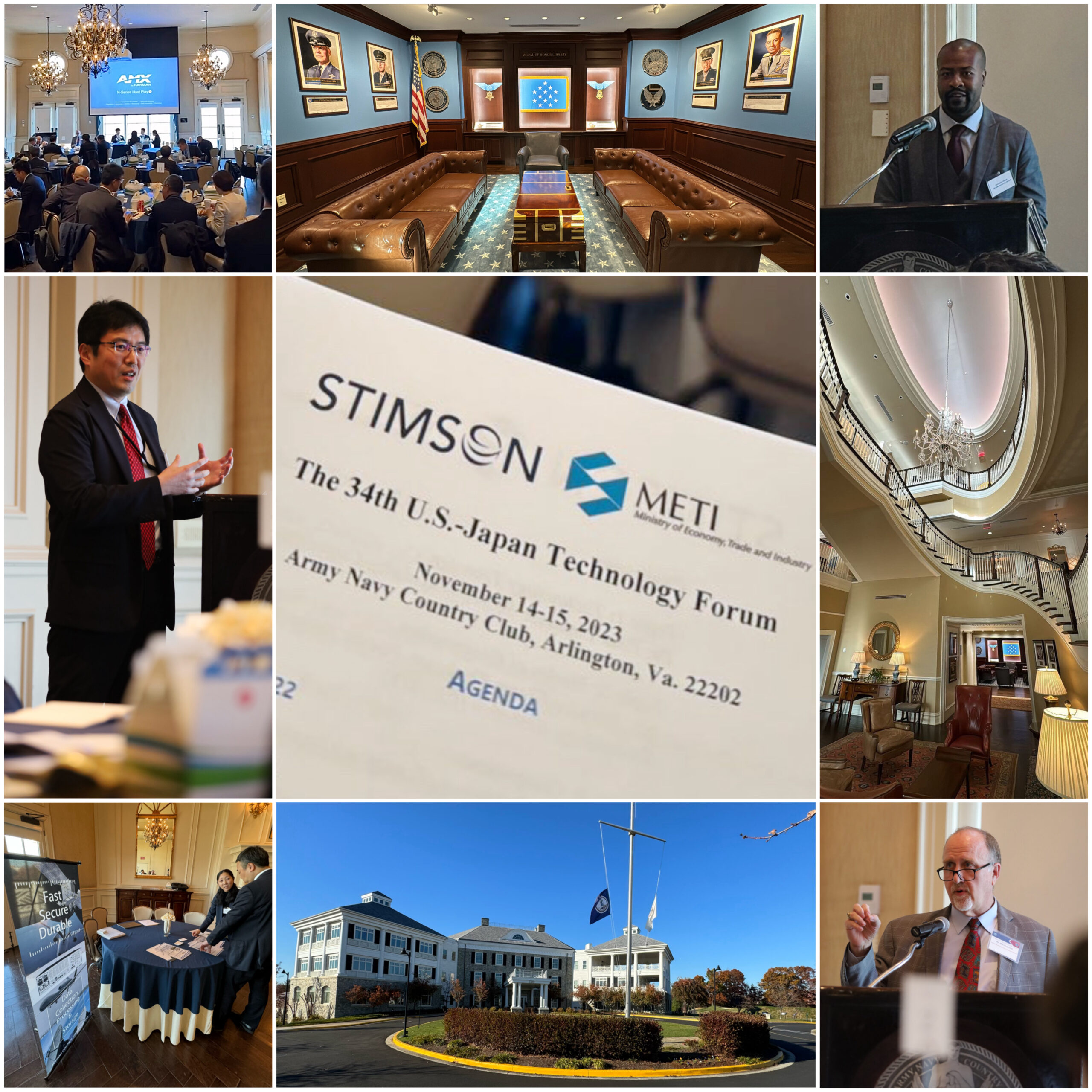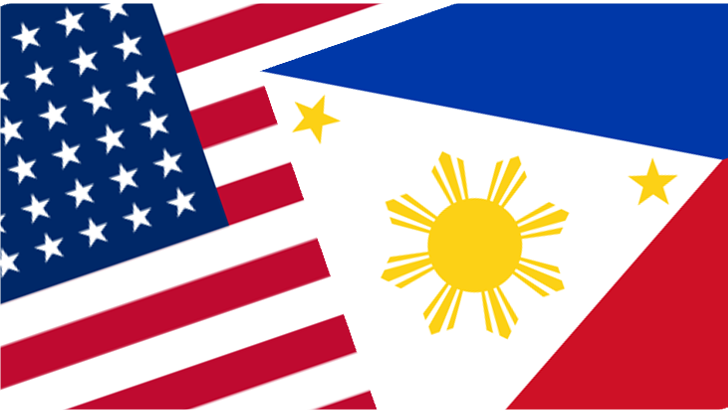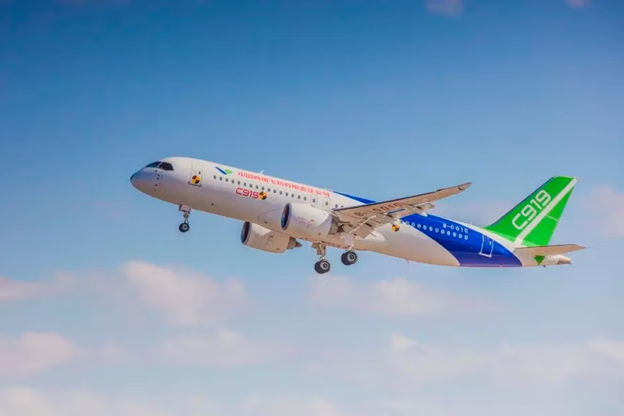Insights and Innovations at the US-Japan Technology Forum
Leaders, innovators, and emeritus professionals representing industry, government, defense, think tank, and startup teams from Japan and the US met to share insights and innovations at the US-Japan Technology Forum at the Army-Navy Club in Arlington, Virginia on November 14th and 15th. The Stimson Center and the Japan Ministry of Economy, Trade, and Industry (METI) co-hosted this event, the 34th annual conference in this ongoing partnership and exchange of ideas.
A Policy Focus on the First Day
Panelists and attendees discussed a wide variety of issues and innovations of mutual interest and concern to Japan and the US. Senior officials from the US Office of the Secretary of Defense along with Japanese policy counterparts reviewed and analyzed contemporary policy developments in the Asia-Pacific region. Justin McFarlin, DASD for Industrial Base Development for the Office of the Undersecretary of Defense for Acquisition and Sustainment, explained the essential need to promote the integration of US-Japan production and acquisition, saying “Production is Deterrence”. Rachel Carter, OUSD Policy Japan Chief, expanded on this theme as she emphasized the importance of applying research into using bilateral supply chain resiliency to strengthen the US-Japan alliance, in line with Japan’s December 2022 defense strategy policy declaration.
This discussion was followed by a look at bilateral defense industry dialogue, challenges in technology transfer, and R&D collaboration opportunities. Luke Collins, NSC Director for Japan and Australia, discussed three US government priorities guiding US policy in support of the strategic goal to increase multilateral shared intelligence and operations. These priorities are developing advanced defense technology; harnessing respective strengths to increase co-development and co-production; and diversifying and building more resilient supply chains that don’t create dependence on China. Collins said that although China produces the lowest-cost parts, China also has a record of economic coercion and can cut off the supply of critical exports. This threatens the sovereignty and stability of democratic countries. McFarlin, Carter, and Collins all affirmed that economic and political stability, freedom, and security in democratic countries must never allow themselves to be controlled or influenced by authoritarian and non-democratic regimes such as the Chinese Communist Party government that suppress and deny national and individual liberties in their own countries and other countries.
Organizations Exhibited Tech, Services, and Upcoming Events
After the first day’s panels, industry participants such as Nippon Control System and other companies also at the conference had the opportunity to engage with the industry and government representatives as they showcased their latest technologies, products, and services in a Meet-and-Great vendor tabletop expo session in the afternoon of the first day of the conference. The Society of Japanese Aerospace Companies promoted the Japan International Aerospace Exhibition that will be held in 2024.
Japanese Embassy Hosts Reception
Following the first day’s discussions, attendees met later in the evening at a reception at the historic Old Ambassador’s Residence of the Japanese Embassy on Embassy Row in Washington DC. The reception event proved to be a vibrant intersection of professional collaboration and camaraderie. Attendees took the opportunity to exchange innovative ideas in a relaxed setting over Japanese foods and regionally produced Japanese sakes, fostering a rich exchange of knowledge between the two nations. Beyond the confines of formal sessions, the event served as a welcoming space for conference-goers to reconnect with old acquaintances and forge new professional and personal friendships, reinforcing the US and Japanese community’s shared commitment to transpacific international relations bonds and mutual understanding.
More Technologies Discussed on Second Day
Discussions continued on Day 2 of the conference, starting with an aerospace industry panel moderated by Intelliwings CEO Daniel Vasquez that looked at key technology developments of in-orbit satellite servicing; drone and aircraft technology; university engineering collaboration with industry in autonomous aerial technologies; UAV imagery collection; and seaborne UAVs. The next panels covered additional topics including space, satellite, and communication resiliency; cybersecurity; AI; and fostering cooperation between US and Japanese industry to promote shared defense and security interests to deter conflict in Asia and around the world. The Co-Chairs of the event then concluded the forum by providing closing remarks, encouraging continued dialog, thanking the participants, and inviting attendees back for next year’s conference.
Forum Fosters US and Japanese Partnerships
The annual US-Japan Technology Forum continues to play a vital role in promoting the exchange of ideas and collaboration among US and Japanese industry and security partners. It serves as an essential event, enabling professionals from both countries, who might not usually have the chance to gather collectively, to share key contemporary insights. This event underscored the practical importance of international collaboration, emphasizing the value of partnerships in addressing shared challenges and fostering innovation across borders.
Intelliwings wishes to thank the teams from the Stimson Center, METI, and all the speakers and attendees for their planning and participation in making this event a success, and further thank the Stimson Center for inviting Intelliwings to moderate the Aerospace panel.



